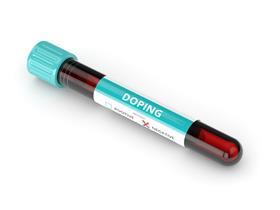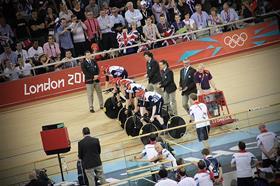Nicola played an important role during the London 2012 Olympic and Paralympic Games working in the anti-doping laboratory
Analysis techniques
In partnership with GlaxoSmithKline, King’s College London ran the anti-doping laboratories in Harlow for the London Games and Nicola joined the team of scientists as an assistant analyst. For three years before that, Nicola focussed on an analysis technique called liquid chromatography with mass spectrometric detection during her PhD at King’s. This method involves separating, identifying and quantifying compounds within a sample to obtain more accurate and sensitive results. This knowledge and experience was put into practice once the athletes arrived in London for the Games.
What do you do in your job?

As an assistant analyst during the Games I prepared the samples and operated the instruments for analysis. Each sample underwent a series of screening procedures to detect prohibited substances. The liquid chromatography-mass spectrometry screening method which I focussed on looked for a variety of compounds such as stimulants, diuretics, glucocorticoids and beta-blockers. Following the initial screen, any suspicious results would be confirmed with a second more specific analysis. Also, certain compounds are tolerated for therapeutic use, but considered banned if used above these threshold levels.
In the 2008 summer Olympics in Beijing, 4770 drug tests were carried out. Of these, 20 were confirmed as cases of illegal doping.
Above or below threshold?
Just confirming the presence of the compound was not enough, we also needed to quantify the compound to determine whether it was above or below the threshold level. One of the major challenges was the number of samples we had to analyse in the short turnaround time – as little as 24 hours before results must be reported.

Taking part in London 2012
London 2012 gave me the opportunity to apply my knowledge to this immense event that was watched by millions of people around the world. To be part of something so huge was absolutely incredible. We got the chance to work in a brand new lab, with brand new instruments, and with people who have had years of experience.
Forensic science background
I completed a master’s in forensic science at King’s before my PhD. During this time I learnt fundamental analytical techniques, increasing my interest and knowledge in anti-doping. I also covered forensic biology, including DNA and trace analysis as part of my studies, but it was the analytical aspects within chemistry that I was drawn to – studying toxicology and detecting drugs in body fluids definitely sparked my interest.’
First published in The Mole, May 2012













